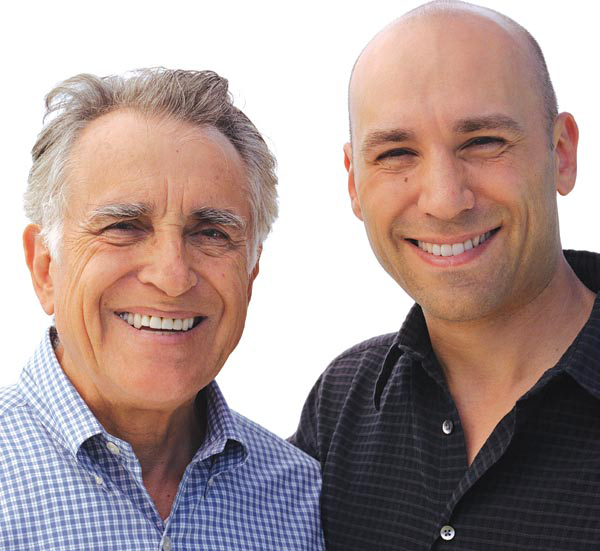December 10, 2010
By Bernard A. Krooks, Esq.,
Certified Elder Law Attorney
If you have a family member with Alzheimer’s disease, there are many issues that need to be addressed. Often, legal issues take a backseat to medical issues, quality of care, caregiver issues, respite and the like. However, properly addressing legal issues in a timely matter can go a long way towards improving the quality of life of your family member with Alzheimer’s disease, as well as making things easier for the caregivers.

Selecting an attorney for any purpose can be challenging. Selecting an attorney in a field as specialized as elder law can be overwhelming. After all, an elder law attorney must be knowledgeable in many areas, including Medicare, Medicaid, senior housing, tax law, estate law, trust law and health care decision making, to name a few. While there is no shortage of attorneys, in general, it may not be so simple to find the right law firm for your needs. Here are some tips:
- Make sure you select an elder law specialist. The legal field has become very specialized in recent years. The law firm you select may impact not only your legal affairs, but also those of your spouse and other family members. You wouldn’t go to a podiatrist if your head hurt, would you? The same specialization guidelines apply to selecting a lawyer. The elder law field is a very narrow niche within the entire practice of law—so much so, that many lawyers hire an elder law specialist when it comes to their own family’s elder law issues. In fact, our office receives about half of its new case referrals from other practicing lawyers. Over the years, clients have shared with us that, other than their health and their family, protecting their nest egg for themselves and their loved ones is of paramount importance to them.
- Is your lawyer a Certified Elder Law Attorney? As on 2010, there are currently 474 Certified Elder Law Attorneys in the United States. The National Elder Law Foundation (NELF) is the only organization accredited by the American Bar Association to certify lawyers as elder law attorneys in the United States. It is a nonprofit organization dedicated to the development and improvement of the professional competence of lawyers in the area of elder law. The certification process attempts to identify those lawyers who have the enhanced knowledge, skills, experience and proficiency to be properly identified to the public as certified elder law attorneys (CELA). There are substantial practice and experience requirements which must be met in order to become certified, including an exam which must be passed. Moreover, CELAs must be re-certified every five years. While certification does not necessary mean that a particular attorney will be more qualified than someone who is not, it is certainly something for you to consider in making your decision. To learn more about NELF, CELAs and the certification process, go to www.nelf.org.

Careful planning with a CELA (certified elder law attorney) can take the pressure off your family. - Ask your friends, colleagues and other professionals. Word of mouth and positive feedback are among the best ways to find an attorney, especially one who is likely to have the requisite skills. Don’t be afraid to ask; someone who has gone through this process with their own relative can be very helpful to you in terms of what you should be looking for. Also, if you have used an attorney in the past who is not an elder law attorney (real estate, estate planning, litigation, or a matrimonial issue), try asking that attorney for a recommendation to an elder law attorney. Try asking other professionals, such as accountants, financial advisors, hospital discharge planners, geriatric care managers, or others in the aging community. If you hear the same name from several sources, then it is more likely that you have found someone who is well known in their field.
- Search for the attorney and the law firm on the Internet. While you shouldn’t necessarily believe everything you read on the Web, it certainly can be a source of very useful information. If you are not comfortable using the computer, ask someone to do it for you. It is not uncommon for caregivers or other family members to assist in this process. It is important to know if the attorney has held leadership positions in bar associations at the national, state or local level. For example, most, if not all, state bar associations have an elder law section. Also, the National Academy of Elder Law Attorneys (NAELA) is a nationwide group of attorneys who practice elder law. Many states have a state chapter of NAELA. Ask your attorney if he has been active or held leadership positions in NAELA or the state bar elder law section. Attorneys who have held leadership positions in bar associations have the respect of their peers and are often leaders in their field. Has the attorney authored any articles in the elder law field that you can read? This may give you a better sense of what issues you should be thinking about. Does the attorney volunteer his time and give back to the community? Go to the law firm’s website to learn more about their practice areas and how long they have been in business. Does the attorney devote a significant amount of his professional time to elder law matters, or is it just a small component of his practice?
Selecting an attorney for a personal matter such as elder law planning is no easy task. Combine that with the fact that you will likely be dealing with many more pressing non-legal issues at the same time, and it is easy to see why this process can be overwhelming. In a perfect world, the attorney would be selected prior to a crisis and while the family is not under stress. However, that is not always possible. Follow the steps outlined above and you will increase your likelihood of finding and selecting the right elder law attorney for you.
Bernard A. Krooks, J.D., CPA, LL.M (in taxation), CELA is immediate past president and founding member of the N.Y. chapter of the National Academy of Elder Law Attorneys and a nationally known and widely quoted expert on elder law. For more information, visit the firm’s website at www.littmankrooks.com.
Source: www.ALZinfo.org. Author: Bernard A. Krooks, Esq., Preserving Your Memory: The Magazine of Health and Hope; Spring 2009.











